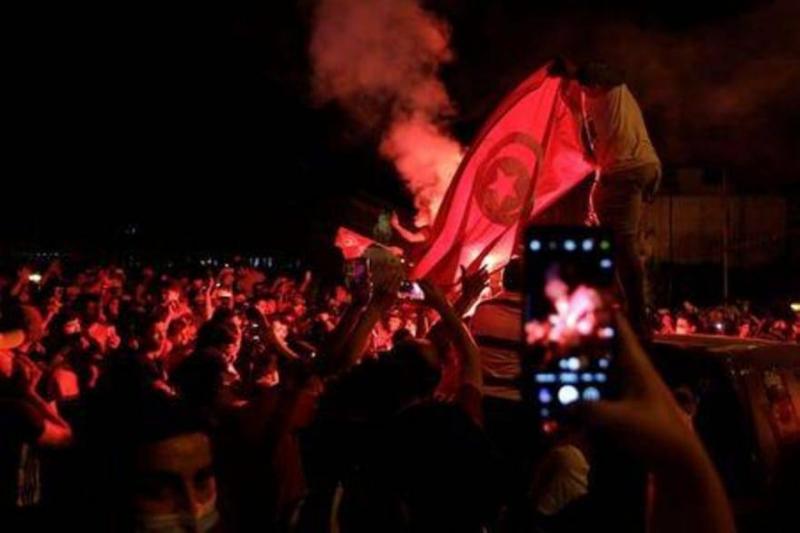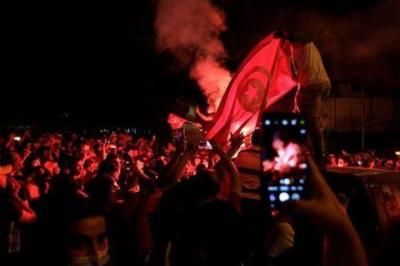The Tunisian President Kais Saied dismissed the government and froze parliament on Sunday in one of the biggest political crises in Tunisia since the 2011 revolution that achieved democracy. Below is a timeline illustrating the rough path of democracy over ten years in Tunisia and what led to Saied's decision.
* December 2010 - Vegetable vendor Mohamed Bouazizi sets himself on fire after the police confiscate his cart. His death and funeral spark protests against unemployment, corruption, and oppression.
* January 2011 - President Zine El Abidine Ben Ali flees to Saudi Arabia, igniting the Tunisian revolution and uprisings across the Arab world.
* October 2011 - The moderate Islamist party Ennahda, previously banned under Ben Ali, wins most seats and forms a coalition with secular parties to draft a new constitution.
* March 2012 - Polarization increases between Islamists and secularists, particularly concerning women's rights, as Ennahda pledges to keep Islamic law out of the new constitution.
* February 2013 - The assassination of secular opposition leader Chokri Belaid sparks street protests and the resignation of the Prime Minister, while militants launch attacks on police.
* December 2013 - Ennahda relinquishes power after mass protests and engages in a national dialogue, replaced by a technocratic government.
* January 2014 - Parliament approves a new constitution guaranteeing freedoms and personal rights for minorities, dividing power between the president and the prime minister.
* December 2014 - Beji Caid Essebsi wins Tunisia's first free presidential elections, with Ennahda joining the governing coalition.
* March 2015 - ISIS attacks the Bardo Museum in Tunis, killing 22 people. A gunman kills 38 in a seaside resort in Sousse in June. These attacks devastate the vital tourism sector, followed by a suicide bombing in November that kills 12 soldiers.
* March 2016 - The military turns the tide in confrontations with militants, defeating dozens of ISIS fighters who infiltrated a southern town from Libya.
* December 2017 - The economy nears a crisis point due to rising trade deficits and falling currency value.
* October 2019 - Voters express dissatisfaction with major parties, leading to a highly fragmented parliament, followed by the election of independent politician Kais Saied as president.
* January 2020 - After months of failed attempts to form a government, Elyes Fakhfakh becomes Prime Minister but is forced to resign within months due to a corruption scandal.
* August 2020 - Saied appoints Hichem Mechichi as Prime Minister. He soon clashes with the president, and his fragile government faces crisis after crisis, struggling to manage the COVID-19 pandemic and urgent reform needs.
* January 2021 - Ten years after the revolution, new protests sweep Tunisian cities in response to police violence allegations and the pandemic's impact on an already weak economy.
* July 2021 - Saied dismisses the government and freezes parliament, stating he will rule alongside a new Prime Minister, citing Article 80 of the constitution, which is rejected by Ennahda and other parties in parliament as a coup.




